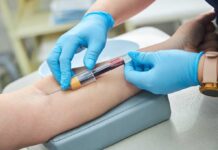
What if a single experimental treatment could make an aggressive brain cancer disappear? That’s exactly what happened to Ben Trotman, and it could change everything you thought you knew about battling glioblastoma.
At a Glance
- A groundbreaking case of glioblastoma remission after using the drug ipilimumab.
- A new clinical trial at UCLH aims to test the broader efficacy of this treatment.
- Support from high-profile fundraising is driving this research forward.
- The outcome could revolutionize glioblastoma treatment paradigms.
The Unbelievable Case of Ben Trotman
Ben Trotman was diagnosed with glioblastoma, a particularly nasty and aggressive form of brain cancer, in 2022. Typically, this diagnosis comes with grim statistics—a median survival rate of 12-18 months and a five-year survival rate of less than 7%. However, Ben’s journey took a remarkable turn. Enrolled in an experimental trial at University College London Hospitals (UCLH), he received the immunotherapy drug ipilimumab. This drug, usually approved for other cancers like melanoma, had never been used for brain tumors in this way before.
Dad’s aggressive brain cancer vanishes after taking new drug https://t.co/bJVMekP93R pic.twitter.com/rsUPzpQC4V
— The Independent (@Independent) July 21, 2025
Fast forward two years, and Ben shows no signs of cancer. His oncologist, Dr. Paul Mulholland, called the outcome “very unusual.” This unexpected success has sparked the launch of a new clinical trial, aiming to replicate Ben’s results with a broader patient group. The implications of this are enormous, potentially rewriting the playbook for treating glioblastoma and offering hope where there was previously none.
Watch: A groundbreaking case of glioblastoma remission
The New Frontier in Glioblastoma Treatment
The success of Ben’s case has led to the Win-Glio trial, also known as Margaret’s Trial, which began in July 2025 at UCLH. This trial plans to recruit 16 newly diagnosed glioblastoma patients who will receive ipilimumab before undergoing standard treatments like surgery and chemotherapy. The idea is to prime the immune system at its strongest point, giving the body a better fighting chance. It’s a novel approach that could shift how clinicians design treatment protocols for glioblastoma and potentially other aggressive cancers.
Funding for the trial has been bolstered by the campaign efforts of Dame Siobhain McDonagh, who raised over £1 million after her sister, Baroness Margaret McDonagh, succumbed to the same disease. This high-profile support is crucial, as it keeps the spotlight on brain cancer research and helps secure the resources needed to carry out such groundbreaking studies.


















